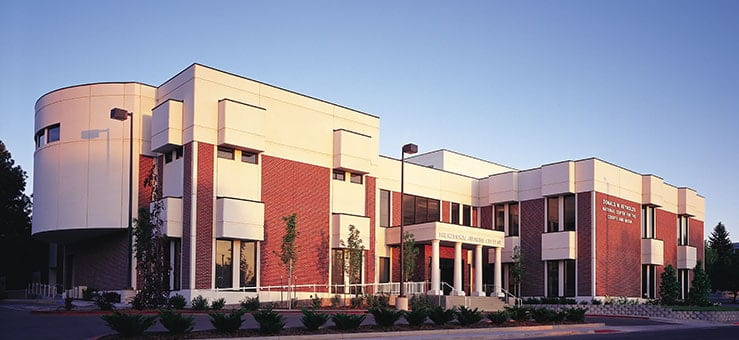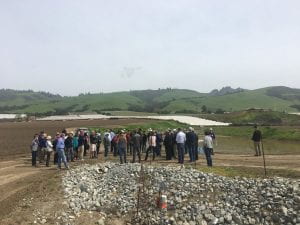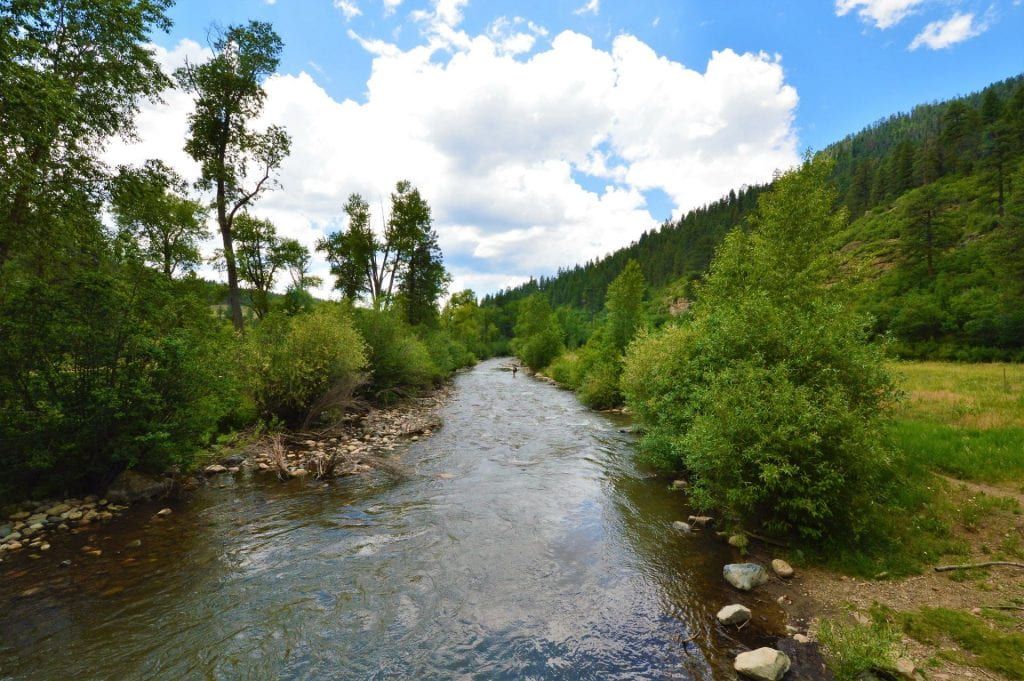Executive Director, Dividing the Waters
In this issue’s Q&A, Texas+Water Editor-in-Chief, Dr. Todd Votteler, interviews Steve Snyder, Executive Director of the National Judicial College’s Dividing the Waters program.
Snyder became Executive Director shortly after he retired as the court appointed special master for the Pecos, Lower Rio Grande, San Juan and Animas general stream adjudications pending in the district courts of the State of New Mexico. During the fourteen years Snyder served as special master, he heard a variety of disputes over conflicting claims to the use of water in New Mexico’s principal river basins. Prior to becoming a special master, Snyder was a commercial litigator and partner of a major law firm in Denver. He earned his undergraduate degree and an MBA from the University of New Mexico and his JD from the University of Texas. In his spare time he enjoys visiting the prehistoric and historic sites of New Mexico and the greater Southwest.
What is the National Judicial College?
The National Judicial College (the “NJC”) is the national leader in continuing legal education for judges. It offers an average of 100 courses and programs annually to more than 8,000 judges from the 50 states, U.S. territories and more than 150 countries. The NJC’s educational offerings are not tedious lectures. They include opportunities for “hands on” learning and collegial dialogue. With the growth of online education, more than 10,000 judicial officers are accessing 30 to 50 NJC hosted web events each year.

The founding of the NJC traces back to 1961, when the American Bar Association, the American Judicature Society and the Institute of Judicial Administration organized a Joint Committee for the Effective Administration of Justice. One of the Committee’s principal recommendations was that an entity be created to provide quality continuing legal education for judges throughout the country. In 1963, with the financial assistance of the W. K. Kellogg Foundation, the NJC offered its first educational programs on the campus of the University of Colorado at Boulder. More than 300 judges applied for the 83 seats that were available for the NJC’s first class. In 1964, the NJC moved to its permanent academic home on the University of Nevada, Reno campus. The NJC is housed in its own building on the Reno campus.
What is Dividing the Waters?
 Dividing the Waters (DTW) is an affiliate of the NJC. DTW provides educational programming in water law, hydrology, environmental science and water resource management to judges who preside over water resource disputes. Through its educational programming, DTW provides a forum for judges to learn from one another by discussing the unique procedural and substantive legal problems that arise in water rights related legal disputes. Dividing the Waters was founded in 1993 with the financial support of The Ford Foundation. Major financial support has also been provided by the Hewlett and Bechtel Foundations.
Dividing the Waters (DTW) is an affiliate of the NJC. DTW provides educational programming in water law, hydrology, environmental science and water resource management to judges who preside over water resource disputes. Through its educational programming, DTW provides a forum for judges to learn from one another by discussing the unique procedural and substantive legal problems that arise in water rights related legal disputes. Dividing the Waters was founded in 1993 with the financial support of The Ford Foundation. Major financial support has also been provided by the Hewlett and Bechtel Foundations.
During its initial years, DTW’s educational programs focused on the problems inherent in administering general stream adjudications. DTW’s programming evolved over the years and today its programming addresses the most critical water issues facing the judiciary and, by extension, the country today — issues such as global climate change, deteriorating water quality, watershed derogation, endangered species and growing cities.
DTW became an affiliate of the NJC in 2007. As an affiliate, DTW routinely accesses the educational expertise, adult learning methodologies and technologies of the NJC.
How does Dividing the Waters benefit judges who have water litigation?
DTW fills a void in judicial education. Judicial education programs usually focus on evidence, procedure, case management and other topics of concern to general jurisdiction judges. Until DTW was founded, no judicial education courses were available that were tailored to meet the needs of judges whose case load included water resource disputes.
DTW believes that judges who decide water disputes cannot make wise and thoughtful decisions unless they have a basic familiarity with hydrology, the other water related science and the administrative complexities associated with water resource management. DTW’s educational programming is designed to ensure that a judge’s legal analysis is informed by an awareness of the hydrologic cycle, the interdependence of surface and groundwater and the institutions and infrastructure on which the distribution of water is based.
What are the specific programs of Dividing the Waters (DTW)?
DTW holds annually (or sometimes semi-annually) a general conference that focuses on the water resource problems of a particular water basin or Western State. The highlight of the conference is an all day field trip where the judges visit a watershed, a water management facility, and other relevant locations. The conference also includes a day and a half of classroom activities and a keynote lecture by a noted authority on water issues.

DTW’s last general conference was in April of 2019 at Stanford Law School. The theme of the conference was “Sustainable Water Rights Management in Times of Shortage” and the classroom work addressed topics related to this theme. The field trip included a visit to a groundwater recharge and storage project and a water treatment facility that purified water for both irrigation and human use. Another highlight of the conference was an interactive panel discussion among former and currently serving United States Supreme Court Special Masters who were (or currently are) presiding over interstate water rights litigation.
DTW’s next general conference will be in September 2020 at the University of Utah Law School in Salt Lake City. The theme of the conference will be “How Water Law is Responding to the Challenges of Population Growth, Environmental Degradation and Global Climate Change.”
In addition to its annual or semiannual conferences, DTW holds workshops that feature in-depth presentations on specialized topics. Examples of DTW’s past workshops include “Science for Water Judges”, “Taking Climate Change into Account in Judicial Decision Making”, and the “Groundwater-Surface Water Connection.”
Are there any aspects of DTW’s programs that seem to be the most popular with judges who attend?
DTW’s general conference always includes an all day field trip and the judges at every conference have invariably rated the field trip as the conference highlight. The field trips provide the judges with insights into the complexities of water resource management that cannot be provided in a classroom or the courtroom.
Some western states, such as Colorado and Montana, have special water courts. Do you think more states are likely to create special water courts?
A long-held view in American Jurisprudence is that judges should be generalists, and that the law relevant to deciding any legal issue can be understood by any competent judge who uses the conventional tools of legal research and analysis. For this reason, specialized courts—such as Montana’s and Colorado’s water courts—are the exception and not the rule.
As you point out, some Western States have specialized water courts. They have done so for policy and political considerations unique to the particular states in question. I know of no state that is seriously considering the creation of a water court. In fact, it is my understanding that California recently rejected a proposal to create a specialized water court to deal with its myriad water problems.
You might be interested to know that most the judges who attend DTW’s educational programs are not full time water judges. They are so-called general jurisdiction judges who just happened to be assigned a water case. DTW responds to the educational needs of judges who have no experience with water cases by offering a fundamentals workshops that covers the basics of water law, hydrology and water resource management.
What previous experience has been most valuable to you as DTW’s Executive Director?
Prior to becoming DTW’s Executive Director, I was the Special Master for New Mexico’s water rights adjudications for 14 years. In that capacity, I supervised the Pecos River Water Rights adjudication and presided over trials concerning disputed water rights in the lower Rio Grande and San Juan adjudications. I had no experience with water rights disputes prior to my appointment as special master. As a result of my experience as Special Master, I understand the educational needs of judges who have been assigned their first water case, as well as the educational needs of long time water judges.

What do you enjoy most about your work as DTW’s Executive Director?
Three aspects of my work are particularly enjoyable. First, the opportunity to work with federal and state judges from around the country. Second, the opportunity to learn about the different approaches different States take when addressing similar problems. Third, I enjoy planning DTW’s educational programs, in part because I know, based on my own experience that our programs improve the quality of judicial decision naming in the water arena.
How can judges find out more about Dividing the Waters?
DTW’s website is a good place to start. The website describes our educational programming, includes information about our past conferences and workshops, and contains a link to our groundwater bench book and other publications of interest to judges presiding over water cases. Judges can sign up on the website for our monthly newsletter and can request to be notified of upcoming conferences and workshops. Of course, judges should feel free to contact me, at sesnyder@q.com, for information about DTW. They can also contact Joy Lyngar, the Provost of the National Judicial College, at lyngar@judges.org.
